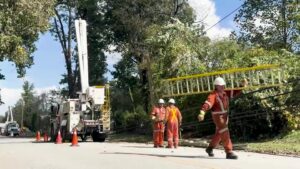Imagine relying on technology daily for tasks like paying bills, pursuing education, or connecting with distant family, only to find it isn’t accessible. This is the reality for many in underserved communities, but a $746,000 grant is set to change that in Michigan. The University of Michigan-Flint has become a pivotal player in enhancing digital access and education across the state thanks to this funding.
The University of Michigan-Flint’s Office of Economic Development (OED) has transformed into a regional hub for the Michigan Inclusive Training Technology and Equity Network (MITTEN) program. This hub covers Michigan’s Prosperity Region 6, which includes the counties of Genesee, Huron, Lapeer, St. Clair, Sanilac, Shiawassee, and Tuscola. The initiative is led by the Michigan High-Speed Internet Office and receives its funding from the Bipartisan Infrastructure Law and the Digital Equity Act. Its main goal is to advance the Michigan Digital Equity Plan by promoting digital inclusion statewide through regional coordination and support for underserved communities.
The OED’s competitive grant of $746,405 enables it to become a center for digital skills training and affordable internet services. The grant will back various efforts, such as pinpointing areas with limited digital access and supporting community partners crucial to MITTEN’s mission.

Paula Nas, director of UM-Flint’s OED, stated, “Closing the digital divide has many components: providing reliable and affordable broadband connectivity, access to technology and digital literacy. UM-Flint’s MITTEN programming focuses on this third component by offering digital literacy training to help individuals develop the digital skills needed to effectively use technology. As an institution of higher education, we are grateful for the opportunity to provide a wide range of digital skills offerings to residents of all ages throughout the region.”
OED’s initiatives will also include digitizing its digital finance, entrepreneurship, and economics educational materials to increase accessibility across Michigan. Additionally, a regional digital coordinator will be hired through the American Connected Corps to work with partners in assessing regional digital literacy needs.
Beyond OED, MITTEN funding will support other campus initiatives, such as the Center on Aging, which focuses on digital accessibility and literacy research for senior citizens. Sheryl Groden, assistant professor of social work and co-chair of the Center on Aging, noted, “The MITTEN grant will help support the UM-Flint Digital Divide research team to teach older adults how to best use internet technology.” The grant will enable expansion of training for older adults beyond Genesee County to six more counties in Michigan.
Collaboration is crucial for these efforts, with over half of the funding earmarked for community and campus organizations. The Center on Aging and GST Michigan Works! will receive support to expand digital literacy programs at America’s Job Centers across six counties in the Flint region. Nas commented, “These and many more funds have been allocated to work alongside community organizations in the region to expand upon the impactful work they are doing to address the digital skills gap.”
For more information on MITTEN, visit Michigan’s Department of Labor and Economic Opportunity website.




